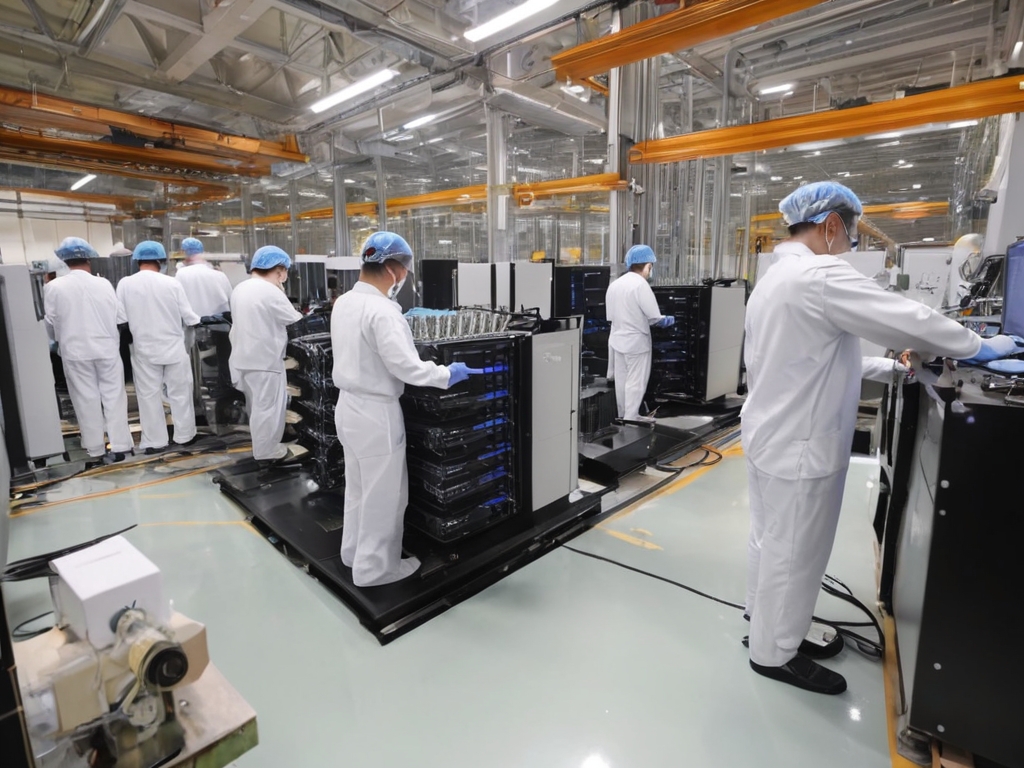The U.S. technology behemoths are cajoling their Taiwanese partners, who specialize in the production of AI servers, to set up shop in Mexico, a possible continuation of the changes in global dynamics related to manufacturing. This strategic move, as also underlined in an article from The Wall Street Journal, does testify, on one hand, the influence not only from the geopolitical consideration but also from the advantage of proximity that it offers to the market of North America. Such encouragement comes on the back of the United States-Mexico-Canada Agreement (USMCA), a trilateral trade accord that makes such a proposition of sidelining the traditional manufacturing hubs such as China in favor of Mexico increasingly viable.
Shifting focus to Mexico
Taiwan’s manufacturers of electronics, the masters of servers, look set to invade Mexico. Driving this change is the push from American tech giants such as Amazon, Google, Microsoft, and Nvidia that, if not publicly confirmed, are said to have their AI servers made by Foxconn in Mexico.
Foxconn’s big investment in Mexican facilities is part of a larger nearshoring trend, moving production closer to the end market to overcome logistic challenges and lead time. Beyond logistics or economics, the move marks an aggressive strategic pivot in the growing acrimony between the U.S. and China. And sitting at that pivot is the USMCA, drawing the map for incentives that could drive them over the border.
Its strategic geographical location and some of the smallest major geopolitical impediments make Mexico, perhaps, one of the most compelling cases against China, the once-deemed largest manufacturing powerhouse of the world.
The benefits of nearshoring
It has been considered that nearshoring has been gaining ground since the USMCA was signed, which establishes stronger trading relationships within North America.
The transfer of manufacturing to Mexico would be cheaper because of reduced transportation costs, while at the same time enhancing the reliability of the supply chain and more effectively dealing with market demand. 300 Taiwanese companies are installed in Mexico; 70,000 people are under their payroll. Their stance makes it a great trade and production power. That transition is also illustrative of a strategic diversification of manufacturing bases away from too much dependency on China, given the unbridled continuity of the long-standing trade tensions and sanctions. Restrictions on the export of advanced chips to China—an element needed critically in producing AI servers—further comprehend Chinese firms’ ability to meet the demands of American technology enterprises. The emergence of Mexico, and particularly Baja California and Tijuana, as a viable option resolves this impasse situation, providing a solution to maintaining the flow of cutting-edge technology products.
Challenges and opportunities
Despite the apparent advantages, establishing manufacturing operations in Mexico is not without its challenges. Issues such as wage competition and the reliability of utilities pose potential obstacles that companies must navigate.
Add to that the strategic benefit of nearshoring, combined with incentives by USMCA, to add to the attractiveness of Mexico for tech manufacturing, ensuring its close but non-concentric relation to the U.S. market. The broader trend of U.S. imports shows reducing reliance on China for its manufacturing. According to data by the Census Bureau, the percentage of Chinese goods in U.S. imports has fallen sharply, which points out a general trend of diversifying sources of manufacturing.
This is part of the whole strategy of reducing risks the country takes in putting overreliance on one country for critical components and products.
While Ujon fights on for a move in the making to Mexico, the global electronics production landscape appears set for a big change. This will shift the focus to nearshoring, not just out of economic and logistical necessity, but to adapt to the change in the geopolitical environment. Mexico has a lot to gain from such a shift and will soon cement its position as the technology and manufacturing hub of North America.
These evolving changes once again point to the strategic importance of partnerships and trade agreements in shaping global trends in manufacturing. Under a complex web of international trade, all companies are urged to look at the USMCA as one of the enablers for a smooth transition.
The move toward manufacturing in Mexico represents a one-of-a-kind proactive approach in bestowing regional strengths, fostering economic growth, and making sure that the supply chain resilience, within an uncertain global landscape, is made certain. In short, the push of Taiwanese manufacturing houses to set up AI server production houses in Mexico comes as a golden opportunity in terms of the global manufacturing network. This development, propelled by geopolitical, JSON economic, and logistic considerations, emphasizes the strategic character of nearshoring and diversification. If before it was perceived as huge and far-reaching in terms of relations in international trade, technological and economic this can now be perceived in the world.
Original Story From https://www.tomshardware.com/tech-industry/manufacturing/make-ai-servers-in-mexico-us-tech-firms-tell-taiwanese-manufacturers





